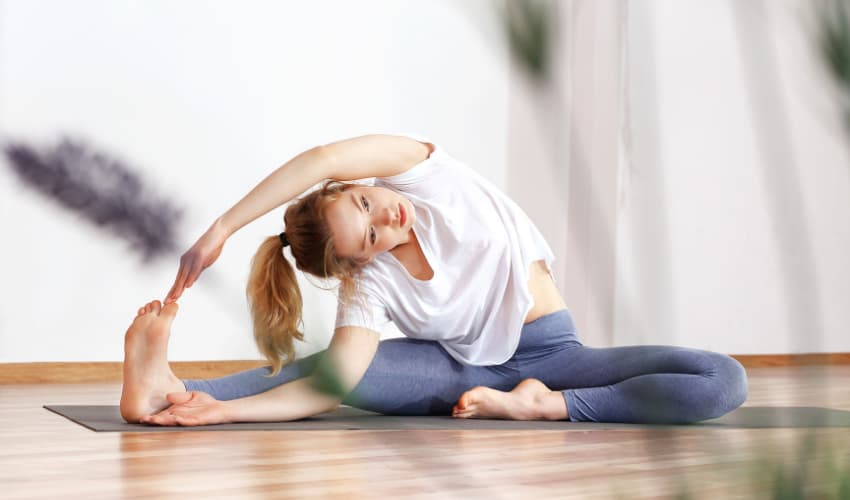In today’s fast-paced world, the ability to remain calm, focused, and emotionally steady is more valuable than ever. While many people rely on external solutions to manage stress, true resilience comes from within. This is where hatha yoga proves to be a powerful tool, as it nurtures both the body and the mind. Beyond physical flexibility, it offers an inner framework for coping with daily challenges, building emotional balance, and sharpening focus.
The Connection Between Hatha Yoga and Mental Strength
Mental resilience is the capacity to adapt and recover from stress, setbacks, or adversity. It doesn’t mean avoiding difficulties but rather facing them with clarity and confidence. Hatha yoga, with its blend of postures, breathing exercises, and mindfulness, builds this resilience by training the mind to remain steady even in uncomfortable situations. Holding poses requires patience, deep breathing controls stress responses, and meditative awareness cultivates clarity. Together, these elements strengthen the ability to stay calm under pressure.
Developing Emotional Stability Through Practice
Our emotions are often swayed by external triggers such as work pressure, family responsibilities, or unexpected challenges. Over time, these stressors can cause irritability, mood swings, or even burnout. Hatha yoga helps stabilise emotions in several ways:
-
Mindful movement allows practitioners to observe feelings without reacting impulsively.
-
Breath awareness regulates the nervous system, creating calmness and emotional steadiness.
-
Meditative postures encourage reflection and emotional release.
When practised consistently, this leads to greater self-awareness, less reactivity, and more balanced responses in everyday life.
Enhancing Focus and Mental Clarity
Distractions have become a common obstacle to productivity and personal growth. From constant digital notifications to overthinking, many find it difficult to focus. Hatha yoga is effective in retraining the brain to concentrate.
-
Balancing poses like tree pose or eagle pose demand attention, sharpening concentration.
-
Controlled breathing directs awareness inward, minimising external distractions.
-
Relaxation techniques such as corpse pose teach the mind to settle and let go of cluttered thoughts.
This consistent mental training improves focus not only during yoga but also in professional and personal settings.
Building Stress Tolerance
Stress is unavoidable, but how we respond to it defines our resilience. Hatha yoga strengthens stress tolerance by engaging both physical and psychological systems. When holding a challenging pose, the body learns to remain calm under discomfort through breath control and mental focus. This directly translates into daily life, where stressful moments can be handled with more composure. Over time, practitioners notice a significant reduction in anxiety levels and a stronger ability to adapt to high-pressure environments.
The Role of Breath in Resilience
Breathing is a core aspect of hatha yoga, and it is one of the most effective tools for building resilience. Practices such as alternate nostril breathing, ujjayi breath, or diaphragmatic breathing regulate the autonomic nervous system. They lower heart rate, improve oxygen supply, and reduce cortisol. By consciously controlling breath, practitioners gain the ability to calm themselves quickly in stressful situations, a skill that proves invaluable in daily life.
Practical Applications in Everyday Situations
The lessons learned on the mat are highly relevant beyond yoga sessions. Consider these applications:
-
At work: A professional preparing for a presentation can use breathing exercises to reduce nerves and increase clarity.
-
At home: Parents dealing with demanding routines can practise short restorative sequences to regain patience.
-
In study environments: Students can improve focus and memory retention by combining yoga with mindful breathing.
These practical benefits make hatha yoga a lifestyle choice rather than just a fitness activity.
Tips for Building Mental Resilience with Hatha Yoga
For those looking to specifically strengthen resilience, a structured approach is useful.
-
Start with consistency: Even 15 minutes daily can create measurable shifts in focus and calmness.
-
Include a mix of postures: Combine balancing, restorative, and grounding poses to train different aspects of the mind.
-
Prioritise breathwork: Never skip pranayama, as it is the foundation for mental clarity.
-
End with reflection: A short meditation after practice helps anchor the emotional and mental benefits.
With time, these habits create a stronger foundation for resilience.
Professional Guidance and Structured Practice
While individual practice is beneficial, guided sessions can refine techniques and deepen results. Expert instructors ensure postures are performed correctly and breathing exercises are aligned with personal needs. For those who wish to commit to structured progress, platforms like Yoga Edition provide supportive environments to cultivate resilience under professional supervision.
FAQs on Hatha Yoga and Mental Resilience
Can hatha yoga reduce anxiety long term?
Yes, consistent practice retrains the nervous system to handle stress more effectively, reducing long-term anxiety.
Is it necessary to meditate along with yoga for resilience?
While not mandatory, meditation enhances the benefits of hatha yoga by calming the mind and improving focus. Combining both is highly effective.
How quickly can someone notice changes in focus and emotional stability?
Many people report feeling calmer after the first few sessions, but lasting results generally appear after six to eight weeks of steady practice.
Are specific poses better for mental resilience?
Balancing poses, forward bends, and restorative postures are particularly effective, but it’s the combination with breathwork that makes the biggest difference.
Can children or teenagers use hatha yoga for resilience?
Yes, with age-appropriate guidance, younger individuals can benefit from improved focus, emotional stability, and stress management skills.

